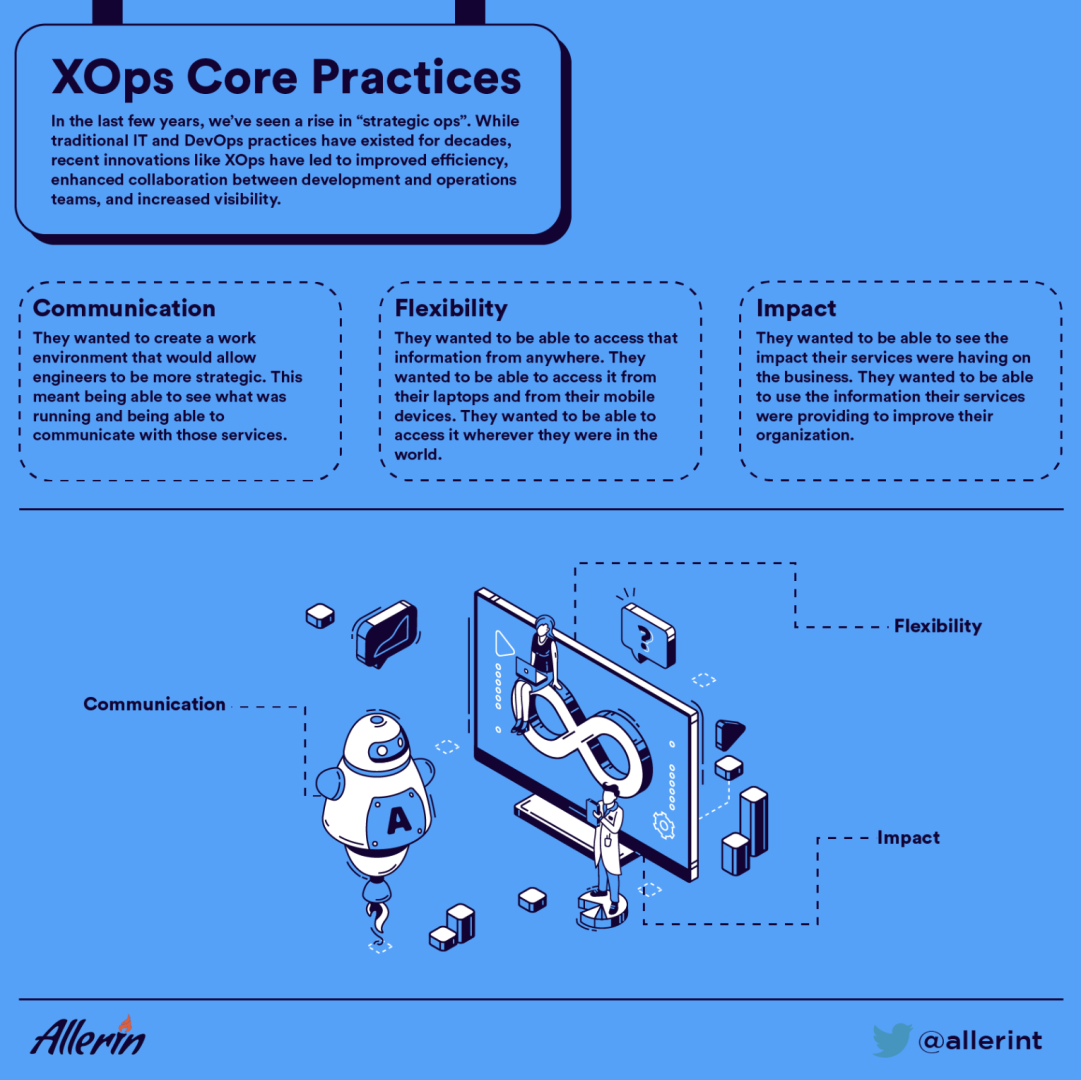Comments
- No comments found

In the last few years, we’ve seen a rise in “strategic ops”.
While traditional IT and DevOps practices have existed for decades, recent innovations like XOps have led to improved efficiency, enhanced collaboration between development and operations teams, and increased visibility.
Strategic operations is the practice of embedding your engineers with the business units for which they are responsible. It is about the engineers working closely with their business users to understand their needs, their workflows and the goals they are trying to achieve. It means that operations engineers are no longer focused solely on keeping their systems up and running. They are thinking more strategically and asking, “How can we use our services to drive impact for the business?” This has led to the emergence of XOps.
The rise of the “strategic ops” role reflects the growing realization that the traditional approach to operations is unsustainable. The traditional model of IT is one-dimensional. It is focused solely on keeping systems up and running. Engineers have built their careers around managing and monitoring infrastructure, responding to alerts, and remedying issues. This approach wasn’t a bad one in the beginning. When the internet first came about, the demand was so high that few engineers had the horsepower to keep up with it. Back then, the focus was on keeping the lights on. As technology has evolved, the amount of data being generated has exploded. More data means more issues for IT teams to manage. It also means getting visibility into these issues and problems becomes more difficult. This has led to increased stress and burnout among operations engineers. They spend increasing amounts of time managing incidents and trying to keep their heads above water. This has created a situation where the demand for more technical resources surpasses the qualified candidates' supply, driving up salaries and making it increasingly difficult for companies to hire and retain talented engineers.
While the idea of strategic ops teams is great, it is often implemented poorly. There are a number of reasons why this is the case. Unfortunately, many organizations don’t assign engineers to specific business units. Instead, they assign engineers to teams that are purely based on what is running on their machines. This leads to engineers who are not being given the necessary context to understand and solve problems. They are trying to solve problems from a place of ignorance and not fully understanding how the systems they manage fit into the business. This is a major reason why traditional ops teams are so stressed out and overworked.
The founders of XOps became frustrated with the status quo. They saw that the industry needed a better way to approach operations. They needed a better way to implement strategic ops within organizations. They had been working as consultants at a number of organizations and had noticed a consistent problem. Engineers were assigned to teams based on what was running on their machines. They wanted to be able to see what services were running and which teams they belonged to. They wanted to be able to communicate with those services and see their metrics. They wanted an operations environment that gave them access to all of this information. But they weren’t getting it.
When they first started talking about XOps, some principal ideas were in mind:

They wanted to create a work environment that would allow engineers to be more strategic. This meant being able to see what was running and being able to communicate with those services.
They wanted to be able to access that information from anywhere. They wanted to be able to access it from their laptops and from their mobile devices. They wanted to be able to access it wherever they were in the world.
They wanted to be able to see the impact their services were having on the business. They wanted to be able to use the information their services were providing to improve their organizations.
XOps has emerged as a natural evolution of the DevOps movement. Like DevOps, XOps is focused on improving collaboration between technical and business stakeholders. For engineers, strategic ops mean they are no longer siloed away from the business units they support. XOps gives engineers access to the information they need to be effective and efficient. It enables them to be more strategic and drive impact for the business.
Naveen is the Founder and CEO of Allerin, a software solutions provider that delivers innovative and agile solutions that enable to automate, inspire and impress. He is a seasoned professional with more than 20 years of experience, with extensive experience in customizing open source products for cost optimizations of large scale IT deployment. He is currently working on Internet of Things solutions with Big Data Analytics. Naveen completed his programming qualifications in various Indian institutes.
Leave your comments
Post comment as a guest